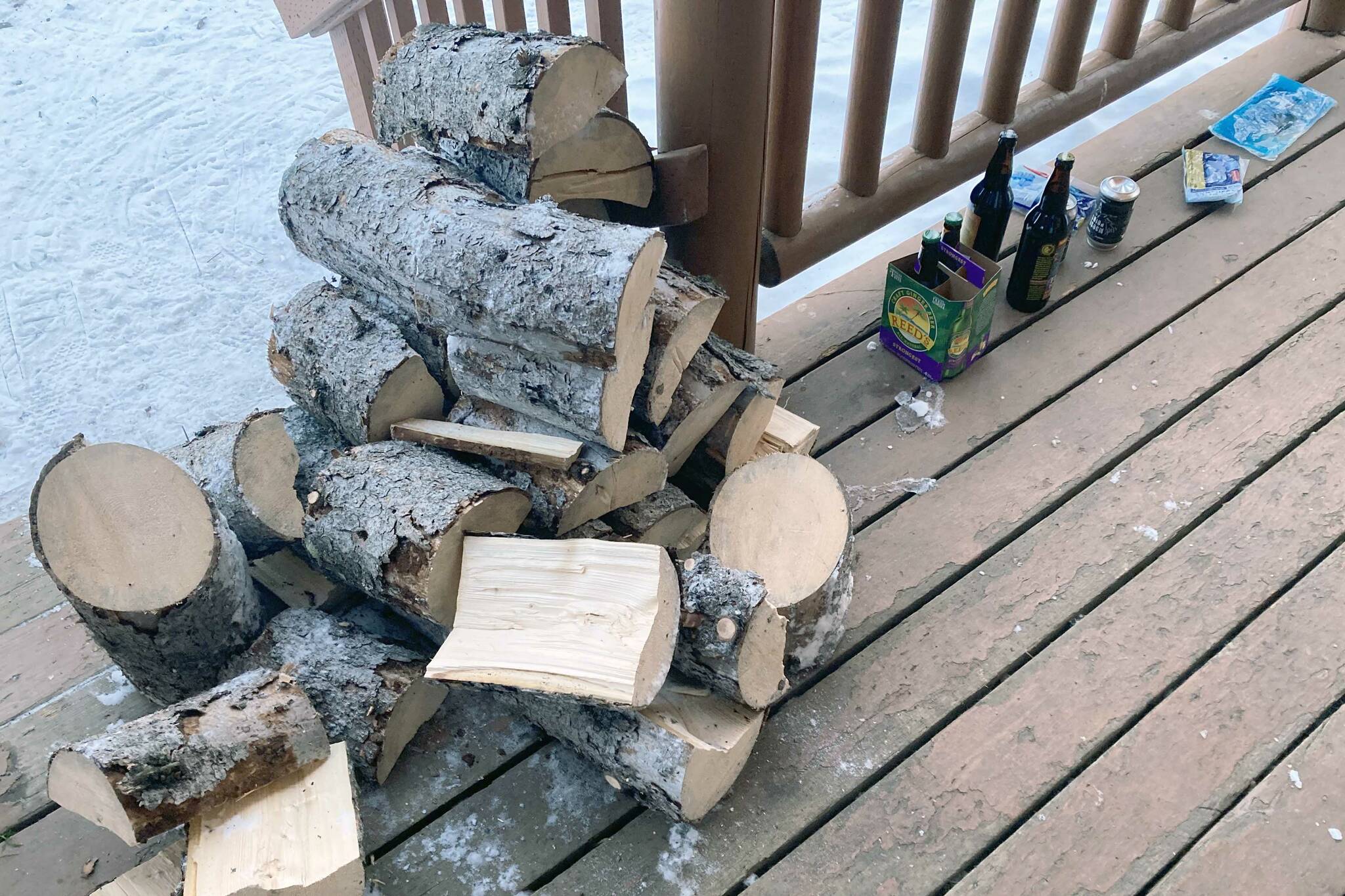“Maybe we should open the window,” my cabinmates said.
“No,” I replied.
It was late November 2021 and we were in the Engineer Lake Cabin. The temperature outside was in the high single digits. It had taken a sled full of wood to get the cabin up to a comfortable temperature. Just because things were getting a little hot was no reason to let heat escape.
I was still scarred from an experience I’d had in the Barber Cabin on Lower Russian Lake years earlier.
In similar temperatures, I had brought in a sled full of wood and that too warmed the cabin to a comfortable temperature.
Then the hunt began for more burnable wood. Everything was either too awkward to saw, too green or too wet to keep the cabin warm. The temperature started dropping as I stayed up all night sawing wood, trying to get it to burn, and convincing myself not to walk back to the car.
Those days are over.
What I didn’t realize that night on November 2021, much to the chagrin of my roasting cabinmates, is that we’ve entered a golden age for winter use on many of the more accessible cabins on the Kenai Peninsula.
As a friend recently pointed out to me, newer cabins like those at Kelly Lake, Engineer Lake and Dolly Varden Lake are beautifully constructed and hold heat well, but they also clearly were not built with winter efficiency in mind.
The high ceilings are cool to look at when lying on your back on an air mattress, but old-timers needing cabins to live in and warm up quickly would have judged the lofty beams wasteful.
Thus my problem at the Barber Cabin. It took a bunch of wood to warm the cabin all the way from the ceiling down to the floor. Once all that wood had burned, I had nowhere good to turn.
Enter the Swan Lake Fire of 2019 and the spruce bark beetle outbreak on the Kenai Peninsula. Thanks to those two events, the cabins at Kelly Lake, Engineer Lake and Dolly Varden Lake are surrounded with perfect firewood.
That night in November 2021, I had sawed and split a bunch of spruce and birch that had partially burned and fallen in the Swan Lake Fire. When I was ordering the windows remain shut, there was still some question in my mind how effectively the wood would heat the cabin.
The spruce incinerated quickly. The heavy birch logs burned long and deep, piping out so much volcanic heat that the cabin eventually became unbearable, forcing us to open the windows. Even then, the cabin remained uncomfortable for quite some time.
Cabins in winter have a special type of magic. The long, cold nights. The lack of bugs. The frozen lakes that allow direct routes. The sleds that allow travelers to bring whatever gear, food and libations they want, no matter how heavy.
Jugs of water, cast iron skillets, massive air mattresses with battery-powered pumps, luxurious meals — they’re all on the table.
So load up a sled and visit the wonderful, easily accessible cabins here on the peninsula.
And don’t be afraid to open a window.


